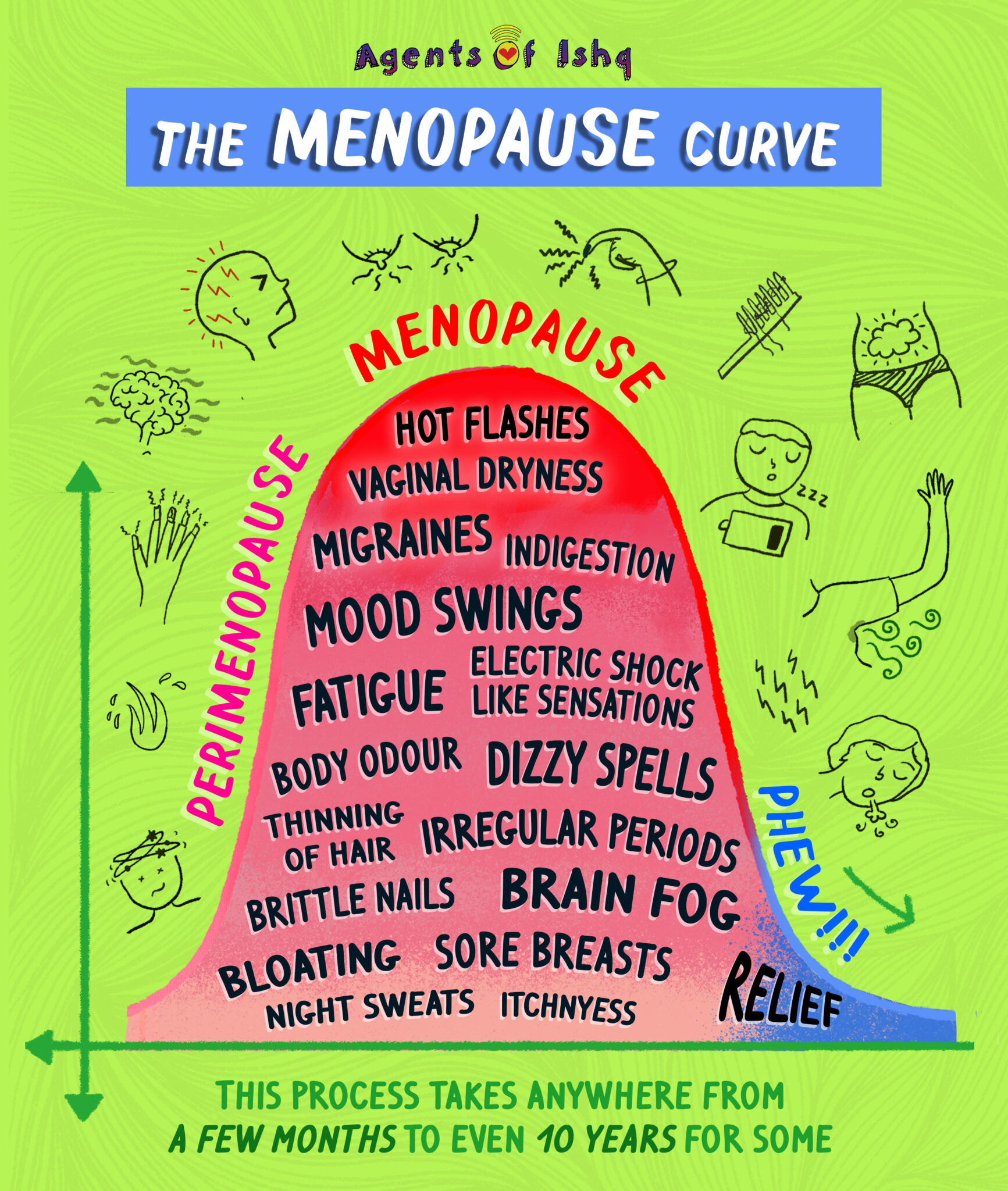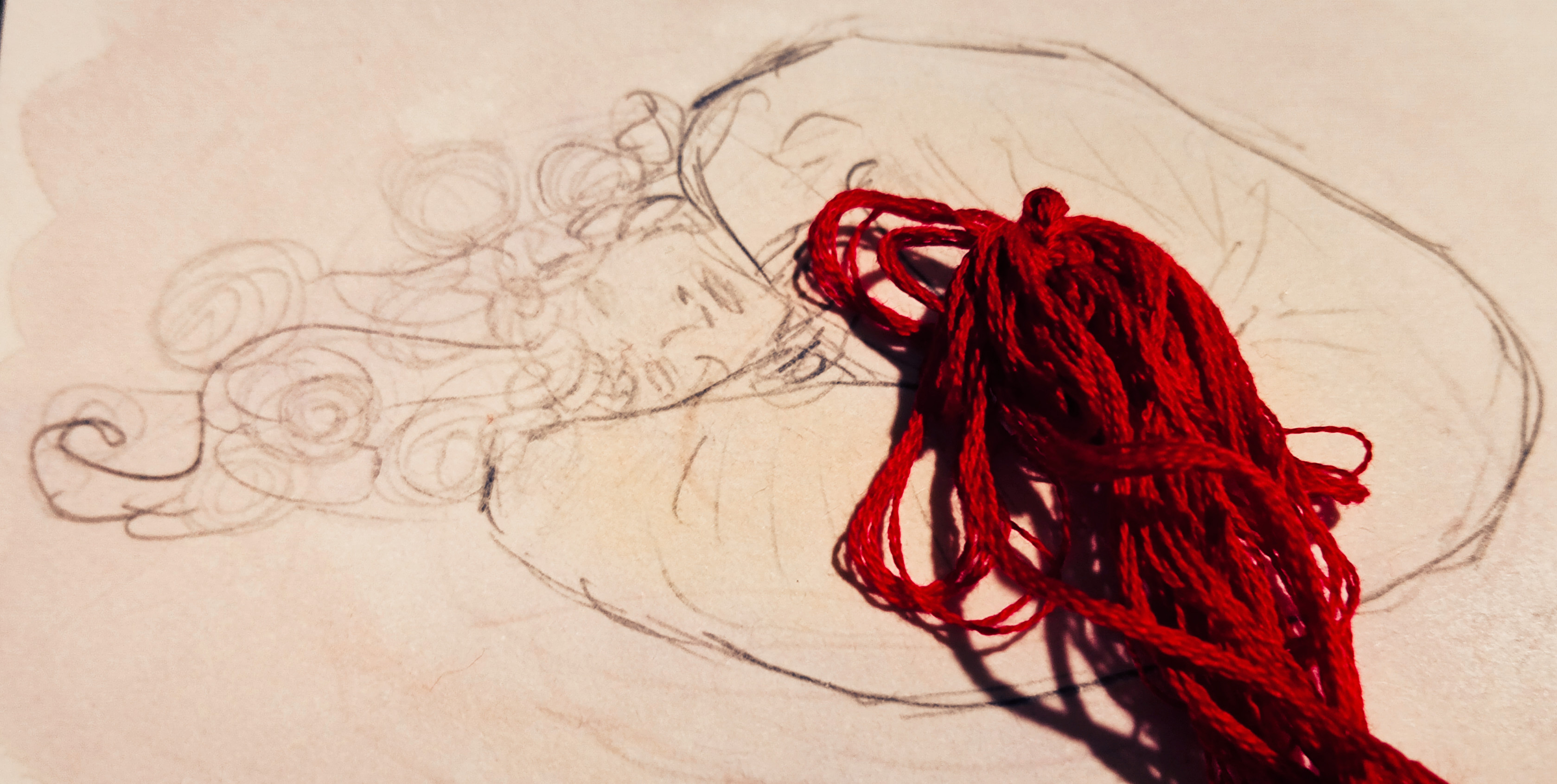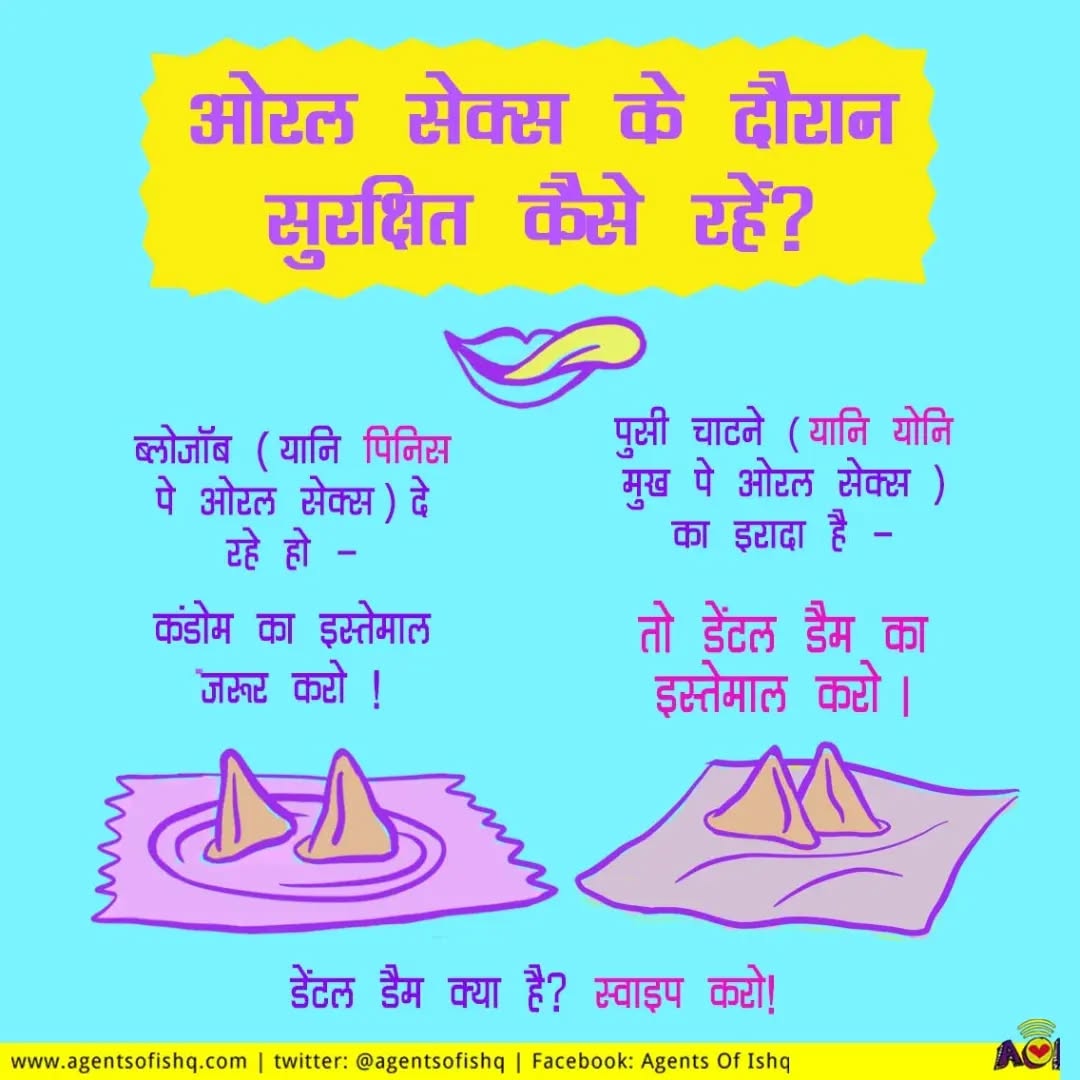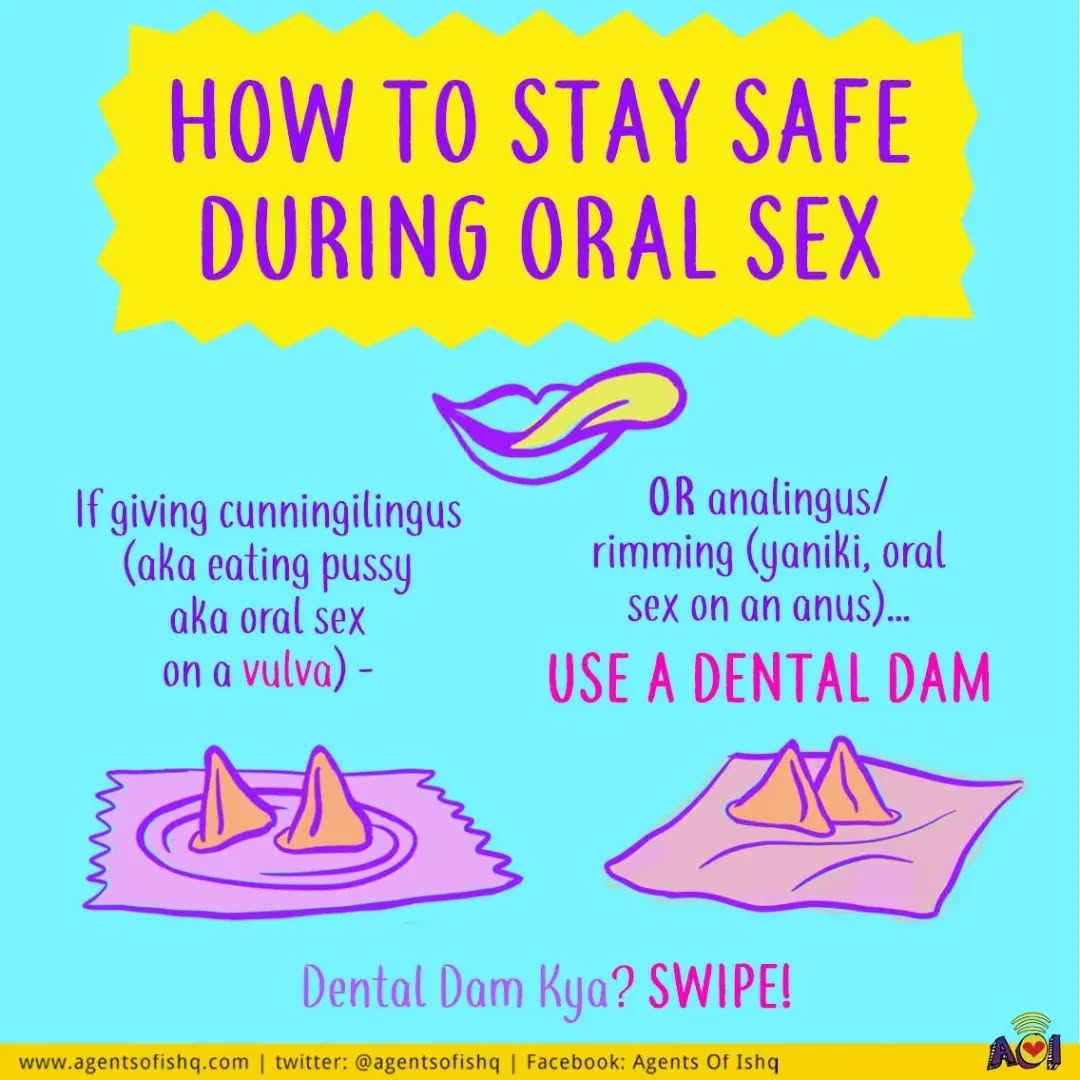End of Period (Beginning of Another)- Stuff Menopause Does
Menopause is more an easy sexist butt of jokes, than a phenomenon we take seriously.


 Menopause is more of an easy sexist butt of jokes, than a phenomenon we take seriously. In all the conversations about menstrual health and discrimination, menopause is missing, just like periods go missing (ragad ragad ke) when menopause begins. It’s a double discrimination against women and their bodies, sexism pe ageism free.It’s often called “the change” but is not quite as simple or smooth as downloading an update on your phone. Menopause is more like a parabola - an arc of time that starts with perimenopause, peaks with menopause, and then settles, phew! This arc of time could be months, or it could be years. It differs from person to person! In essence, menopause is all about the body experiencing hormonal changes, and like at puberty, these changes can cause upheavals. Here are some common signs of menopause –
Menopause is more of an easy sexist butt of jokes, than a phenomenon we take seriously. In all the conversations about menstrual health and discrimination, menopause is missing, just like periods go missing (ragad ragad ke) when menopause begins. It’s a double discrimination against women and their bodies, sexism pe ageism free.It’s often called “the change” but is not quite as simple or smooth as downloading an update on your phone. Menopause is more like a parabola - an arc of time that starts with perimenopause, peaks with menopause, and then settles, phew! This arc of time could be months, or it could be years. It differs from person to person! In essence, menopause is all about the body experiencing hormonal changes, and like at puberty, these changes can cause upheavals. Here are some common signs of menopause – - Hot flashes happen because the hypothalamus aka the body’s thermostat becomes more sensitive due to a decrease in estrogen. The slightest chill increases body heat so much that you begin to sweat.
- Night sweats or hot flashes when you’re asleep at night. When the outside drops a little at night, a sudden wave of heat spreads through the body. There is sweating, reddening of the skin, and rapid heartbeat. Often, a night sweat is followed by a cold chill.
- Irregular periods mean periods se chhutkara but dheere. It can include heavy bleeding and less frequent periods.
- Breast soreness during perimenopause can feel like a sharp, stabbing, or throbbing pain in the breasts. Usually, it stops once you enter menopause.
- Vaginal dryness because of vaginal atrophy or the thinning of vaginal walls because natural lubrication decreases. (There’s always lube!)
- Mood swings and irritability happen because estrogen affects serotonin and norepinephrine (also known as ‘happy hormones’) and can cause a variation in mood. The physical changes that the body goes through can also impact one’s mood.
There are some other chhupa-rustam ones which we don’t talk about often jaise – - Fatigue and dizzy spells due to fluctuations in insulin production which can make it difficult for the body to maintain blood sugar stability.
- Migraines have been linked with periods in over 50% of persons with vaginas, according to the National Migraine Centre. Menstrual migraines may worsen as you approach menopause as periods become irregular.
- Burning mouth or Changing in taste jaise sensations of tenderness, heat, numbing, or burning in and around the mouth. A metallic taste, dryness, soreness, and tingling of the tongue have also been reported.
- Bloating or Indigestion yaniki change in gut ki feelings because the natural rhythm of the gut is affected by the drop in estrogen drop. Stress can also contribute to this.
- Thinning of hair and Brittle nails due to decreased estrogen. Decreased estrogen also causes a rise in androgens, like testosterone, and results in baldness or appearance of facial hair.
- Itchiness because of dryness in skin caused by the decline in estrogen (which helps in maintaining hydration and stretchiness of the skin).
- Tingling in the hands, feet, arms, and legs, because the central nervous system gets affected by the hormone fluctuations.
- Electric shock-like sensation is linked to stress and hormonal imbalances that impact the nervous system.
- Stress incontinence or Urinary incontinence yaniki difficulty in holding urine because the pelvic region’s muscles which support the urinary bladder weaken.
- Body odour as a result of sweating due to hot flashes.
- Brain fog along with forgetfulness, difficulty in concentration, attention, and memory lapses are also observed during perimenopause. It is attributed to sleep disturbance, again caused by hormonal changes in the body.
Score:
0/
 Menopause is more of an easy sexist butt of jokes, than a phenomenon we take seriously. In all the conversations about menstrual health and discrimination, menopause is missing, just like periods go missing (ragad ragad ke) when menopause begins. It’s a double discrimination against women and their bodies, sexism pe ageism free.It’s often called “the change” but is not quite as simple or smooth as downloading an update on your phone. Menopause is more like a parabola - an arc of time that starts with perimenopause, peaks with menopause, and then settles, phew! This arc of time could be months, or it could be years. It differs from person to person! In essence, menopause is all about the body experiencing hormonal changes, and like at puberty, these changes can cause upheavals. Here are some common signs of menopause –
Menopause is more of an easy sexist butt of jokes, than a phenomenon we take seriously. In all the conversations about menstrual health and discrimination, menopause is missing, just like periods go missing (ragad ragad ke) when menopause begins. It’s a double discrimination against women and their bodies, sexism pe ageism free.It’s often called “the change” but is not quite as simple or smooth as downloading an update on your phone. Menopause is more like a parabola - an arc of time that starts with perimenopause, peaks with menopause, and then settles, phew! This arc of time could be months, or it could be years. It differs from person to person! In essence, menopause is all about the body experiencing hormonal changes, and like at puberty, these changes can cause upheavals. Here are some common signs of menopause –


































































































































































































































































































































































































































































































































































































































































































































































































































































































































































































































































































































































































































